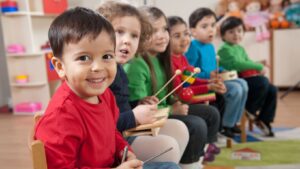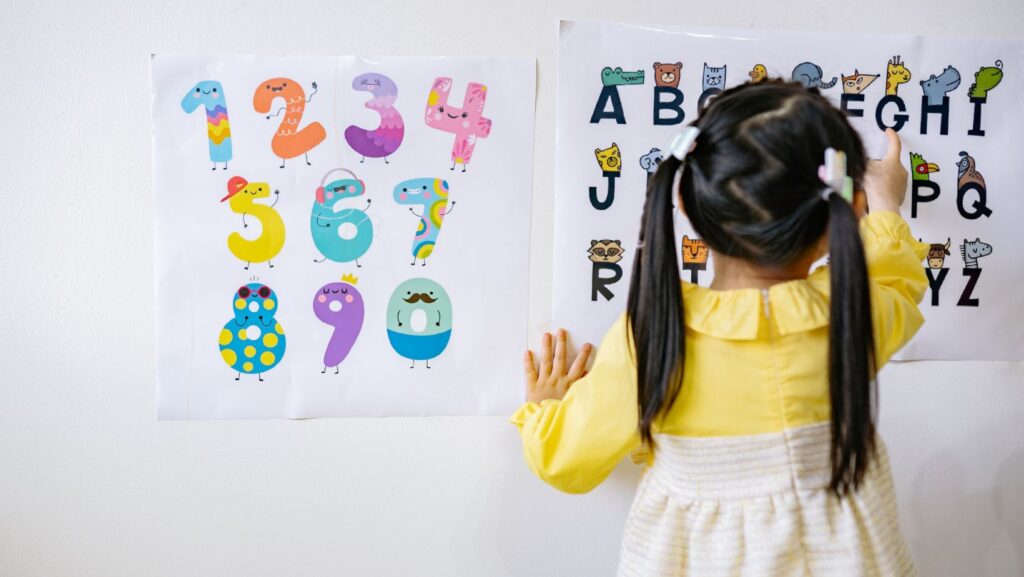Choosing the right preschool for the early years is more than just child’s play. It’s about setting the foundation for a lifetime of learning and growth. This article delves into the world of early years preschool, providing insights on its importance and how it shapes a child’s future. In the maze of educational choices, early years preschool stands out as a critical stepping stone. It’s not just about ABCs and 123s, but nurturing curiosity, creativity, and social skills. So, let’s embark on this enlightening journey to understand the role of preschool in a child’s early years.
Early Years Preschool
Embarking on the journey of early childhood education goes beyond imparting mere academic knowledge to preschoolers. The following subsections delve into the significance of this phase and outline the formative principles that guide effective learning at this stage.
The Importance of Early Childhood Education
 Preschool, an integral stage of early childhood education, forms the bedrock for cognitive development and emotional maturity. Studies like the Perry Preschool Project affirm the positive long-term effects of early education, such as an increased likelihood of high school graduation and a reduction in instances of juvenile justice system contact. Holistically, early childhood education doesn’t just teach alphabet and numbers; it fosters curiosity, creativity, and nurtures essential social skills. For instance, activities like group play in preschool encourage cooperation and empathy, fortifying a child’s social framework.
Preschool, an integral stage of early childhood education, forms the bedrock for cognitive development and emotional maturity. Studies like the Perry Preschool Project affirm the positive long-term effects of early education, such as an increased likelihood of high school graduation and a reduction in instances of juvenile justice system contact. Holistically, early childhood education doesn’t just teach alphabet and numbers; it fosters curiosity, creativity, and nurtures essential social skills. For instance, activities like group play in preschool encourage cooperation and empathy, fortifying a child’s social framework.
Key Principles of Early Years Learning
Understanding children’s learning attributes helps shape efficient early years teaching methodologies. The following illustrates three critical principles consistently seen in well-structured early years classrooms:
- Structured Play: Play forms the crux of a child’s learning process, working as a fertile platform that ignites imagination and fosters creativity. LEGO Duplo, a constructive building set, exemplifies structured play that combines fun and learning.
- Hands-On Learning: Children learn the best by experiencing. Schools incorporate tactile materials such as edible paints and sensory bins to provide hands-on learning that engages multiple senses.
- Fostering Resilience: By encouraging children to take on responsible roles, such as class helpers or leaders, early years educators foster resilience and self-esteem in children. Notably, Montessori schools pioneer this principle through their approach.
Through the lens of these principles, early years preschool essentially paves the way for children’s well-rounded development, shaping their future with strong foundations in their pre-academic life.
Curriculum and Learning Approaches
In the realm of early years preschool, two core components steer the child’s learning journey: a carefully devised curriculum and a set of effective learning approaches tailored to their needs.
Play-Based Learning
Play-based learning constructs a potent pillar in early years preschool curriculum. Its importance sprouts from its ability to enhance cognitive and motor skill development in children. This learning technique consists of structured, unstructured, and guided play. Structured play, also known as purposeful play, encompasses activities designated by an adult, like puzzle solving or block building to boost a child’s logical thinking skills. Unstructured play, on the other hand, grants children the freedom to explore and make decisions, fostering creativity and resourcefulness. Moreover, guided play enables teachers to introduce learning concepts subtly through engaging play activities, for instance, learning numbers through a game of hopscotch.
Social and Emotional Development
 Equally significant to an early years preschool curriculum is the social and emotional development of a child. It involves learning to interact with peers, understanding emotions, and building strong relationships. For example, activities such as group projects encourage cooperation and empathy, by working together to achieve a common goal. Additionally, role-playing scenarios stimulate a child’s understanding of different perspectives and emotions, laying the groundwork for emotional intelligence. Teachers in preschools also utilize tools like emotion charts to help children identify and express their feelings, nurturing their emotional vocabulary. This holistic approach in preschool education maintains an optimal balance between academic learning and human skill development, strengthening the child’s overall resilience and adaptability. Assessing preschools can be a demanding task, but attain precision taking into account certain little-known factors. Conducting a
Equally significant to an early years preschool curriculum is the social and emotional development of a child. It involves learning to interact with peers, understanding emotions, and building strong relationships. For example, activities such as group projects encourage cooperation and empathy, by working together to achieve a common goal. Additionally, role-playing scenarios stimulate a child’s understanding of different perspectives and emotions, laying the groundwork for emotional intelligence. Teachers in preschools also utilize tools like emotion charts to help children identify and express their feelings, nurturing their emotional vocabulary. This holistic approach in preschool education maintains an optimal balance between academic learning and human skill development, strengthening the child’s overall resilience and adaptability. Assessing preschools can be a demanding task, but attain precision taking into account certain little-known factors. Conducting a

